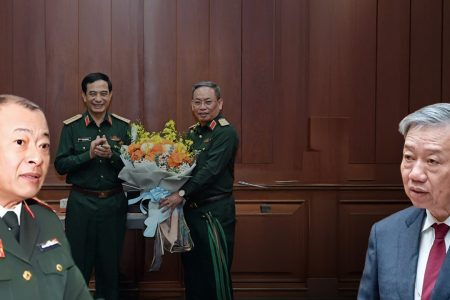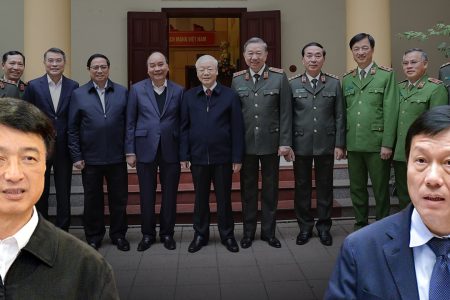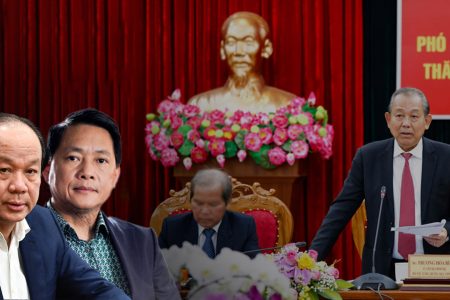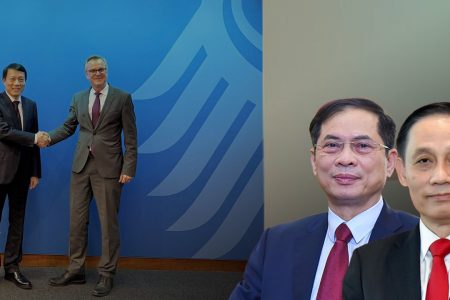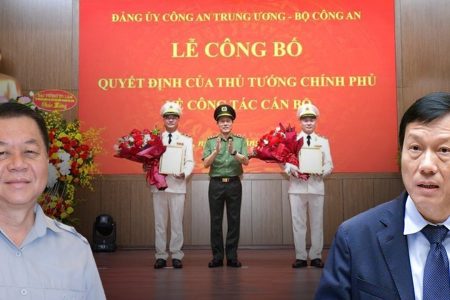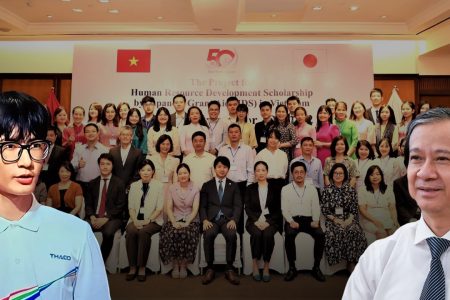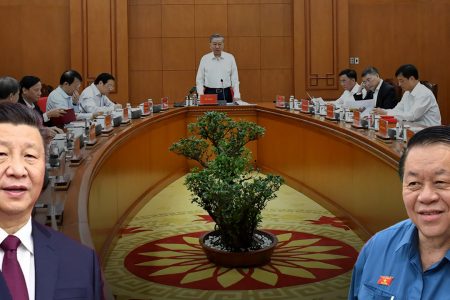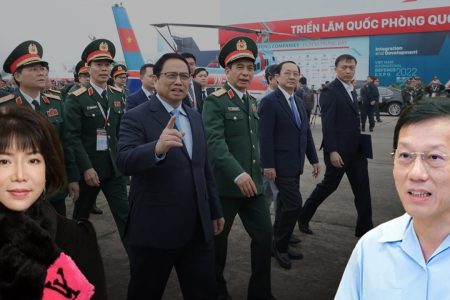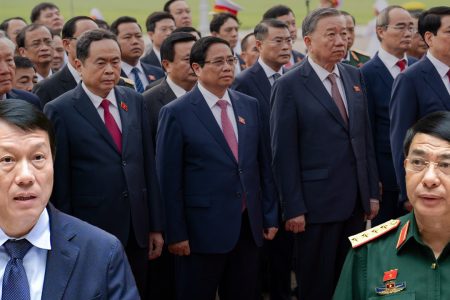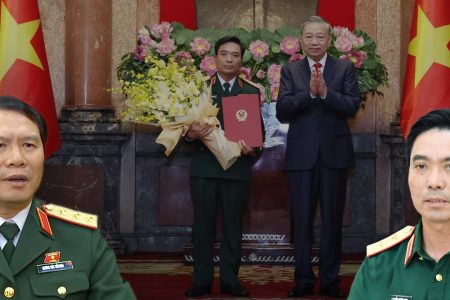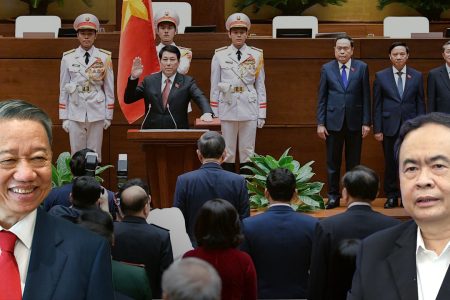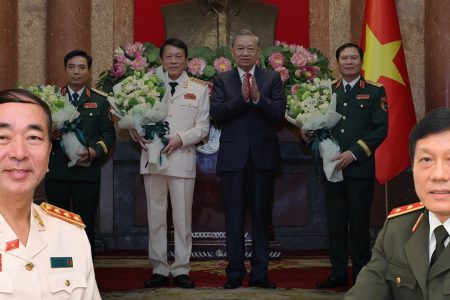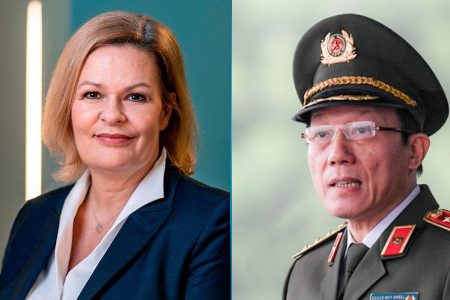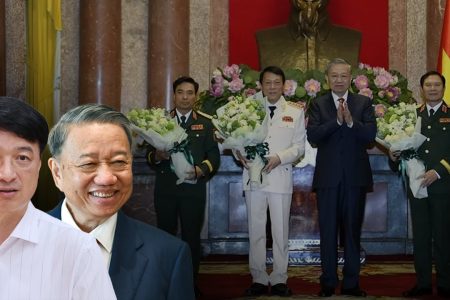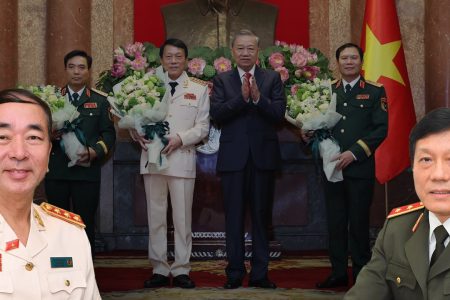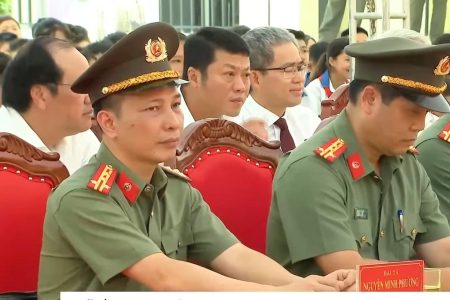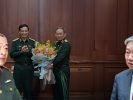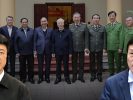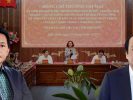
The fact that the Vietnamese court and authorities decided to conduct a closed trial in the first-instance trial against blogger and activist Nguyen Lan Thang showed that “the communist state of Vietnam does avoid embarrassment and not want to lose face” in front of the international community and public opinion. Vietnamese political and human rights observers expressed their views from Germany.
On April 12, 2023, while the above-mentioned first-instance hearing against engineer Nguyen Lan Thang was taking place in Hanoi, human rights lawyer Nguyen Van Dai commented to Radio Free Asia:
“It is very strange that the trial is held behind closed doors at the People’s Court of Hanoi, because so far, with cases related to politics under this regime, there has never been any closed trial.
Because all the documents that Mr. Nguyen Lan Thang accused of propaganda against the communist state of Vietnam were publicly available on social media and did not contain any documents related to state secrets, but they still decided to hold a closed trial.”
Mr. Dai said that according to the information he had before this trial, many diplomats from the embassies of countries in Hanoi had asked the Vietnamese side to allow them to attend this trial.
He said that this may be the reason that the presiding judge decided to close the case to avoid the attendance of foreign diplomatic officials in Mr. Thang’s trial.
Regarding the reason for the avoidance, lawyer Nguyen Van Dai said the facts in the trial could make the government lose face to the world:
“Because Mr. Nguyen Lan Thang’s interviews with international media and press agencies in Vietnamese are very public. All readers find them very normal, no problem, the problems that Mr. Thang raised are problems that happened in reality in Vietnam.
He was just giving his views on those issues and events, which, in terms of freedom of speech, is a very normal right.
If the trial is open, foreign diplomatic officials would hear the prosecutor publish such documents, and then hear the defense lawyer and Mr. Thang’s views, as well as those of the presiding judge, then of course the international community will judge that this is not a matter of breaking the law, but only seeing that there is a political element in this case.”
Even screen tracking doesn’t apply
In the past, in many courts trying dissidents, or democracy, human rights and civil society activists in Vietnam, when representatives of international diplomatic agencies were allowed to participate, the government can arrange for these guests to watch through a special channel and space, such as being able to watch through a live reporting screen right inside the court’s trial area, said lawyer Nguyen Van Dai. This limited form was not applied by the Vietnamese government at the trial of Mr. Nguyen Lan Thang:
“I have heard that right after the previous trials with presence of foreign diplomatic missions, immediately after that meeting, officials always had a report on their diplomatic missions.
And during human rights dialogues, they often bring up cases that are attended by diplomats and judged that given what they know about Vietnamese law, or what the Vietnamese government calls ‘evidence of violation of the law’ of opposition activists, it is not considered by the international community to be a law violation.
Therefore, the Vietnamese government does not want other governments to have more evidence that the Vietnamese government considers human rights activists in Vietnam to be political issues. That is, they do not want more evidence against them in international relations.”
Mr. Dai had many years of practice as a lawyer in Hanoi and defended many human rights and religious cases before being arrested and convicted twice on the charges of “Propaganda against the State” and “conducting activities to overthrow the people’s government.”
In 2018, while serving a 15-year prison sentence for his second sentence, he was allowed to leave the prison and seek political asylum in Germany.
What could be the outcome of the trial?
From his own observational experience and about Vietnamese politics, lawyer Nguyen Van Dai said that in the trials of dissidents Vietnam’s government is often under great pressure from foreign diplomatic missions and international community, he said:
“Especially in my first-instance trial, six or seven representatives of embassies were allowed to attend and they also had very strong pressures.
Or in the trial with Ms. Pham Doan Trang, too, many agencies attended that trial, and Ms. Pham Doan Trang was also sentenced to a sentence harder than what was initially suggested by the procuracy.
So from the start, I had no hope that activist Nguyen Lan Thang could be released by the government, or his sentence would be lower than that of activists who had been convicted in the past,” Mr. Dai stated his point of view.
Mr. Nguyen Van Dai, now a Vietnamese political commentator, hopes that the lawyers with experience in the dissident trials defending Mr. Thang will be able to fully perform their functions at the trial, so that the Trial Panel can have a more objective and fair view in this case.
“However, I must also add that the Trial Panel does not have the right to decide the sentence of Mr. Nguyen Lan Thang, because in all political cases, the sentences for opposition activists are decided in advance by the security agency of the Ministry of Public Security.
And all that happened at their trials was just a play, in which the director, as well as the scriptwriter, was the Ministry of Public Security,” said lawyer Nguyen Van Dai from the Federal Republic of Germany.
Thoibao.de (Translated)



